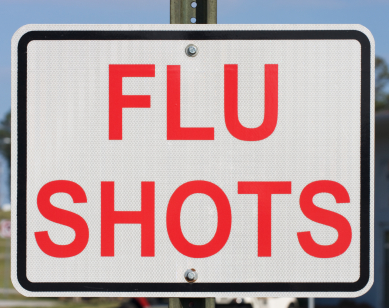UK swine flu vaccine 'approved'
Source: BBC News, 24th September 2009
An expert committee agreed that Pandemrix, made by GlaxoSmithKline, can be used in adults and children over six months old and pregnant women.
The decision removes one of the last obstacles to getting the immunisation programme under way although licensing still needs to be formalised.
The UK has bought 60 million doses of the vaccine.
In addition, there are contracts for an as yet unapproved vaccine, Celvapan, produced by Baxter.
It means the UK has provision for up to 132 million doses - enough for every person in the country.
To read the full article click here
ANH Comment
After what seems like an inadequate test period, the swine flu vaccine has passed and is approved for use in the UK. Although it has been proved safe, consumers might be surprised that nearly 50% of people in one of the key studies used in the evaluation experienced local discomfort or systemic symptoms (i.e. headaches). It seems unlikely that in just a couple of months all of the immediate and long-term effects of this vaccination have been determined.
It would be hopeful to think that lessons had been learnt after the swine flu outbreak in 1976. The vaccine then was related to Guillain-Barré Syndrome (GBS) and it was reported that 500 people were affected by GBS and that by taking the vaccine the risk of contracting GBS was increased by eight times.
At the ANH we are deeply concerned about the level of research that underpins the ‘safety’ of a mass global vaccination. Has enough been done? Considering that doctors have been told to watch for Guillain-Barré syndrome during the swine flu vaccination programme, it seems the answer is no. It took the deaths of 25 people before the immunisation programme was stopped in 1976.
Many experts say they do not think the vaccine will raise a similar risk for Guillain-Barré. But answering that question is difficult because to this day, no one has figured out why the 1976 vaccine caused the disease, in which the body’s immune system mistakenly attacks the nerves.
Conspicuously absent in government advice on the pandemic is useful advice on measures that can be taken to strengthen the immune system. We remind you again of the role of vitamin C and vitamin D in the role of immunity.
For further information on vitamin C click here
It’s well established that in temperate latitudes most of us are highly vitamin D deficient especially during the winter months, this deficiency likely explaining the sudden end to flu seasons. A simple use of a vitamin D supplement of 800-2000IU/day has been shown to more or less eliminate symptoms of seasonal influenza.
The ability to make an informed choice is key, however the limited and conflicted information available to the public will undoubtedly put many people in a difficult position particularly those with young children and other high risk groups. For many people there is no absolute right or wrong answer as there is simply not enough information to make this decision.
Is making an informed choice currently any different to flipping a coin?
Back to Homepage
To Vaccine Choice campaign page








Comments
your voice counts
There are currently no comments on this post.
Your voice counts
We welcome your comments and are very interested in your point of view, but we ask that you keep them relevant to the article, that they be civil and without commercial links. All comments are moderated prior to being published. We reserve the right to edit or not publish comments that we consider abusive or offensive.
There is extra content here from a third party provider. You will be unable to see this content unless you agree to allow Content Cookies. Cookie Preferences